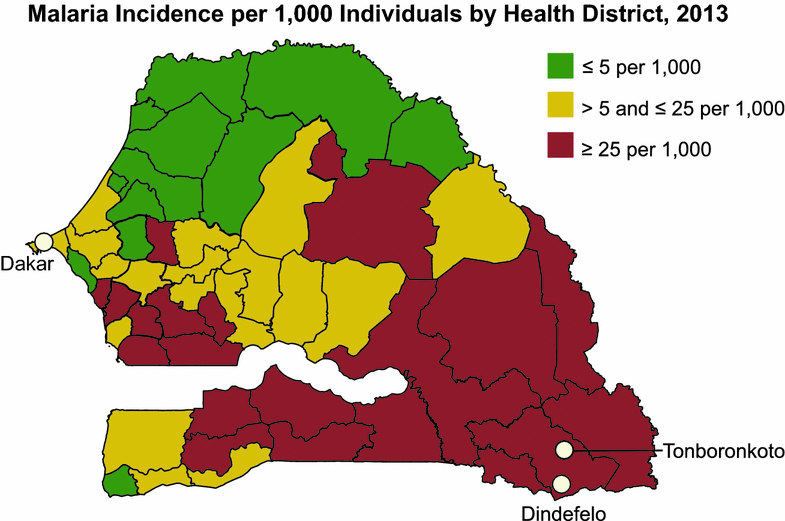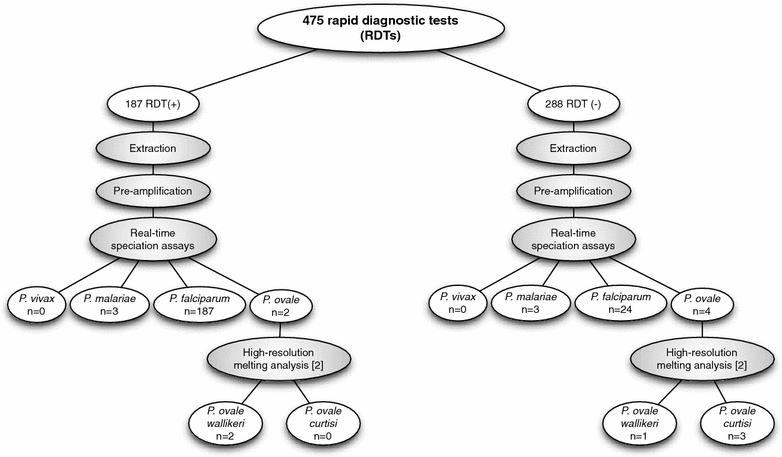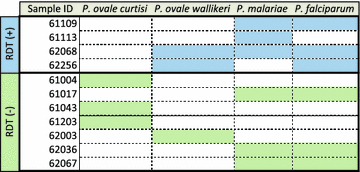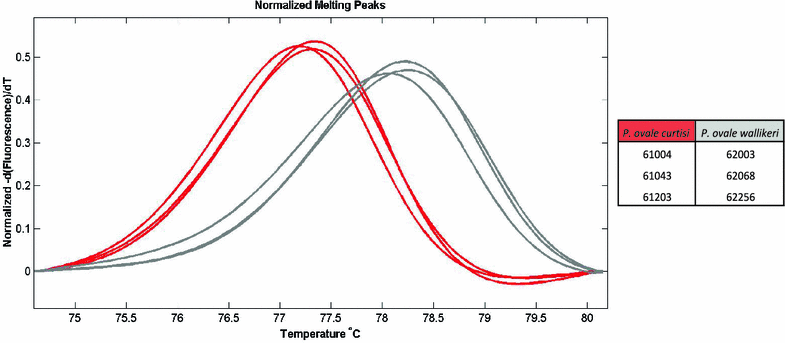Evidence of non-Plasmodium falciparum malaria infection in Kédougou, Sénégal
- PMID: 28049489
- PMCID: PMC5209815
- DOI: 10.1186/s12936-016-1661-3
Evidence of non-Plasmodium falciparum malaria infection in Kédougou, Sénégal
Abstract
Background: Expanded malaria control efforts in Sénégal have resulted in increased use of rapid diagnostic tests (RDT) to identify the primary disease-causing Plasmodium species, Plasmodium falciparum. However, the type of RDT utilized in Sénégal does not detect other malaria-causing species such as Plasmodium ovale spp., Plasmodium malariae, or Plasmodium vivax. Consequently, there is a lack of information about the frequency and types of malaria infections occurring in Sénégal. This study set out to better determine whether species other than P. falciparum were evident among patients evaluated for possible malaria infection in Kédougou, Sénégal.
Methods: Real-time polymerase chain reaction speciation assays for P. vivax, P. ovale spp., and P. malariae were developed and validated by sequencing and DNA extracted from 475 Plasmodium falciparum-specific HRP2-based RDT collected between 2013 and 2014 from a facility-based sample of symptomatic patients from two health clinics in Kédougou, a hyper-endemic region in southeastern Sénégal, were analysed.
Results: Plasmodium malariae (n = 3) and P. ovale wallikeri (n = 2) were observed as co-infections with P. falciparum among patients with positive RDT results (n = 187), including one patient positive for all three species. Among 288 negative RDT samples, samples positive for P. falciparum (n = 24), P. ovale curtisi (n = 3), P. ovale wallikeri (n = 1), and P. malariae (n = 3) were identified, corresponding to a non-falciparum positivity rate of 2.5%.
Conclusions: These findings emphasize the limitations of the RDT used for malaria diagnosis and demonstrate that non-P. falciparum malaria infections occur in Sénégal. Current RDT used for routine clinical diagnosis do not necessarily provide an accurate reflection of malaria transmission in Kédougou, Sénégal, and more sensitive and specific methods are required for diagnosis and patient care, as well as surveillance and elimination activities. These findings have implications for other malaria endemic settings where species besides P. falciparum may be transmitted and overlooked by control or elimination activities.
Keywords: Plasmodium falciparum; Plasmodium malariae; Plasmodium ovale curtisi; Plasmodium ovale wallikeri; Rapid diagnostic test.
Figures




References
-
- Miller RH, Obuya CO, Wanja EW, Ogutu B, Waitumbi J, Luckhart S, et al. Characterization of Plasmodium ovale curtisi and P. ovale wallikeri in Western Kenya utilizing a novel species-specific real-time PCR assay. PLoS Negl Trop Dis. 2015;9:e0003469. doi: 10.1371/journal.pntd.0003469. - DOI - PMC - PubMed
Publication types
MeSH terms
LinkOut - more resources
Full Text Sources
Other Literature Sources
Medical
Miscellaneous

